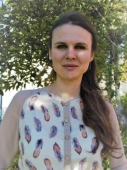CAS bids farewell to two Young CAS projects that have advanced our understanding of human health and linguistic capacities.
Infant Gut Microbiome Acquisition
Infant Gut Microbiome Acquisition
Off to a Healthy Start

Principal investigators

Veronika K. Pettersen
Abstract
Humans have a long-standing coexistence with microorganisms. In particular, the microbial community that live inside the gut, the gut microbiome, is a key factor guiding human health and disease. Mother-to-child microbial transmission plays a central role in the gut colonisation process, with the maternal microbiome being the main source of the infant’s gut bacteria. However, modern lifestyle has changed how maternal microbes are transmitted to a child. Among factors severely altering the microbiome seeding process is antibiotic use shortly before and after birth, which negatively impacts both maternal and infant microbiome and exposes the child to a risk of acute infections and later chronic diseases.
This project will connect experts in microbiology, clinical science, epidemiology, and bioinformatics, which will together discuss a roadmap for translational microbiome research. A sequence of workshops will critically examine current microbiome-focused mother-child population studies, analytical and computational approaches for mining microbiome data, and experimental models for defining causality. In a subsequent research stay, a core group of researchers will formulate review manuscripts based on the workshops and develop joint proposals investigating mother-to-child microbial transmission, drivers of infant gut microbial colonisation, and the impact of antibiotic use on this process. The overarching goal is to outline a strategy on how to effectively harness knowledge on human microbial colonisation for disease susceptibility diagnostics and the development of preventive biotherapeutics.